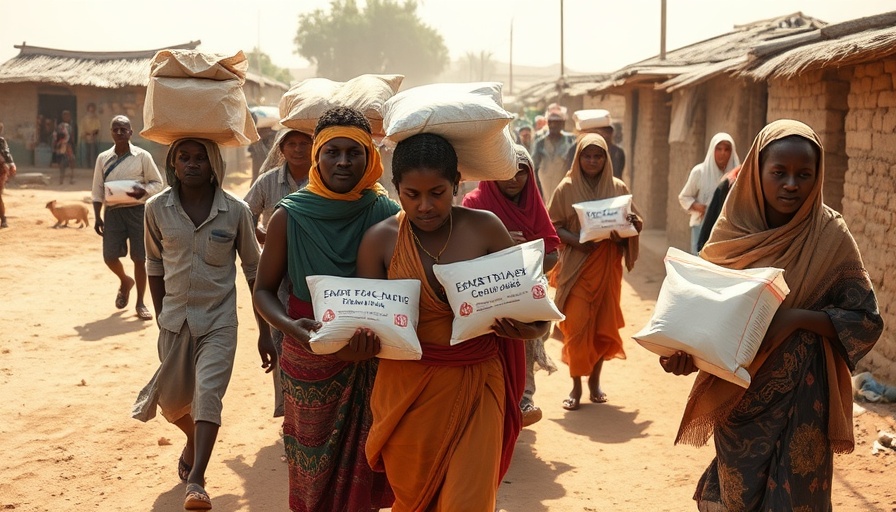
IMF's Crucial Support for Mali's Flood Recovery
In the wake of unprecedented flooding that has devastated regions across Mali, the International Monetary Fund (IMF) has stepped in to provide a vital lifeline of $129 million to help stabilize the country's struggling economy. This funding, released under the IMF's Rapid Credit Facility (RCF), comes at a critical time when Mali faces one of its worst humanitarian crises.
The Economic and Humanitarian Crisis
The severe floods of 2024 left a significant mark on Mali's infrastructure. Reports indicate that over 47,000 homes collapsed, and nearly 3,000 granaries were lost, severely impacting agricultural production and food security. With rising global borrowing costs, Mali's financial burdens have only increased, making the IMF’s emergency financing even more significant. This funding will help import essential goods and repair crucial infrastructure, helping to ensure that trade routes remain operational.
Reforming for a Resilient Future
Alongside the emergency funding, Mali's government, in collaboration with the IMF, has initiated an 11-month Staff-Monitored Program (SMP). This program targets vital reforms aimed at enhancing fiscal transparency and governance. Effective governance is crucial to rebuilding trust with development partners, making trade more reliable and efficient for exporters, importers, and e-commerce businesses in Mali.
Wider Implications for Trade and Commerce
This situation highlights the interconnectedness of humanitarian crises and economic stability. As Mali navigates the aftermath of the flood, fostering robust trade systems becomes even more essential. The African Continental Free Trade Area (AfCFTA) can play a vital role in this recovery phase by promoting cross-border trade and enhancing the digital economy in the region. By leveraging the newfound financial support and focusing on infrastructure rebuild, Mali can create a more resilient framework for its commerce sector.
Mali's recovery efforts present opportunities not just for local communities but for international partners and those engaged in cross-border trade. By supporting Mali’s initiatives, exporters and importers can participate in the rebuilding of a crucial market in West Africa.
In light of these developments, staying informed about Mali’s economic adaptations is integral for businesses involved in trade and e-commerce. The need for transparency and resilience in infrastructures will inform investment decisions and strategic partnerships in the region.
 Add Row
Add Row  Add
Add 




Write A Comment